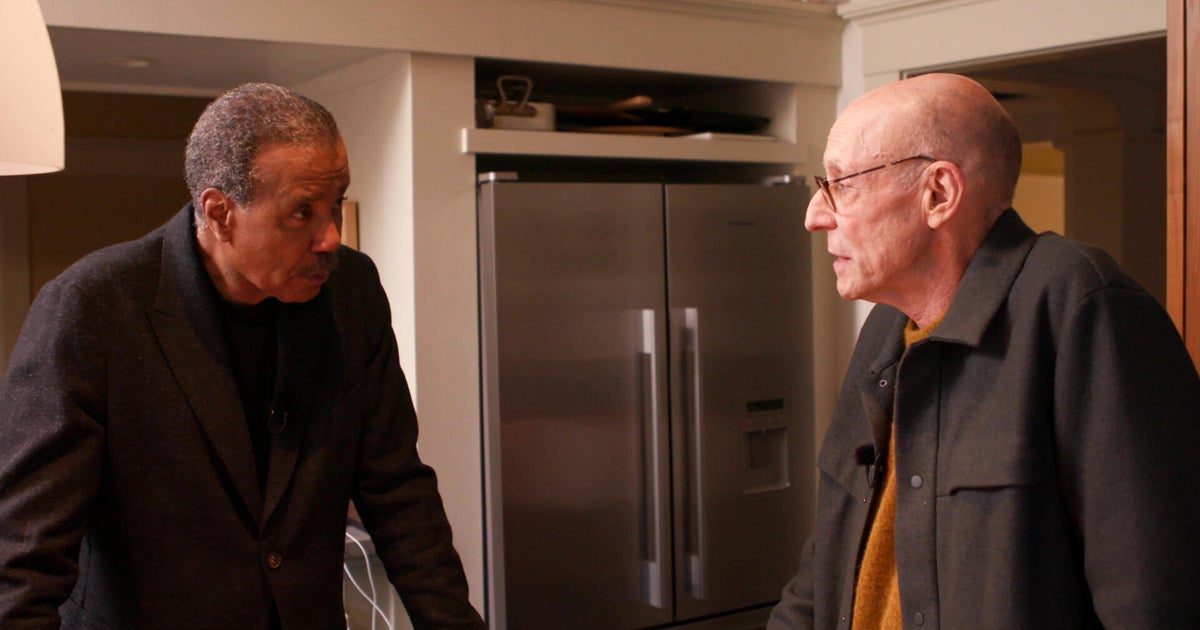Treating servers like they're "part of the menu"
As a waitress at restaurants in Hollywood and New York City, Trish Nelson served some of the biggest celebrities in show business. But she says working on her side of the table was anything but glamorous. Rather the restaurant industry is, in her opinion, "lawless."
"I think it became pretty clear to me pretty early on that if I needed boundaries set, I was going to have to attempt to set them myself, because for employees … there's confusion that you're somehow a part of the menu," she tells Anderson Cooper in the video above.
That lack of boundaries has had repercussions. This winter, nine women made accusations against celebrity chef Mario Batali, which caused him to step away from his business empire. On 60 Minutes this week, Nelson is one of several women speaking out about the sexual harassment and sexual assault they say occurred at a restaurant that Batali frequented: The Spotted Pig in Manhattan's West Village.
But Nelson says the restaurant culture is similar, from Hollywood to New York City. Servers are paid to provide an experience, and if something untoward happens — either from a staff member or a customer — they must mask it at the risk of ruining a customer's experience.
"I think that there's a confusion that if you're a servant, you're not a human being, and that's just not the case," Nelson says. "We are all human,"
Erin Fein, a former bartender at The Spotted Pig, says lewd behavior is not unique to chefs like Batali or restaurants like The Spotted Pig. Rather, she says it occurs throughout the restaurant industry — including from the customers.
"I think it starts with the people in power," she says in the clip above. "But I think that it absolutely seeps into the clientele and the way that it is acceptable to behave inside of restaurants at this time."
Fein says she experienced unwelcome behavior at her first job at a bar in the Midwest, and while she acknowledges that the behavior doesn't happen in every restaurant, she does think it's widespread.
"It's happening all over the country," she says.
Fein thinks the dynamic of restaurants contributes to the behavior in two key ways. One element, she says, is the atmosphere of fun — and alcohol. When people drink too much, "behavior starts to degrade."
The other, Fein says, is an entrenched attitude toward people who make a living by serving others.
"It feels to me like there's a history, at least in our country, of behavior from clientele and from our bosses that, as a server or a bartender, in a way, you are a servant and you are beneath," she says.
The women Anderson Cooper speaks with on 60 Minutes this week say the behavior they experienced at The Spotted Pig —especially by its owner, Ken Friedman — was pervasive for a number of years. But it took the broader nationwide swell of the #MeToo movement to compel them to speak out.
Jamie Seet, a former manager at The Spotted Pig, tells Cooper in the clip above that watching the #MeToo movement unfold inspired a group of four women to come together at a friend's apartment and talk about their common experiences over a cup of tea.
Natalie Saibel, a former waitress, says she derived strength from that group, an assurance that the other women, in a sense, would protect her.
"Otherwise, I wouldn't have been able to come forward," Saibel says. "I wouldn't have had the courage, I don't think."



